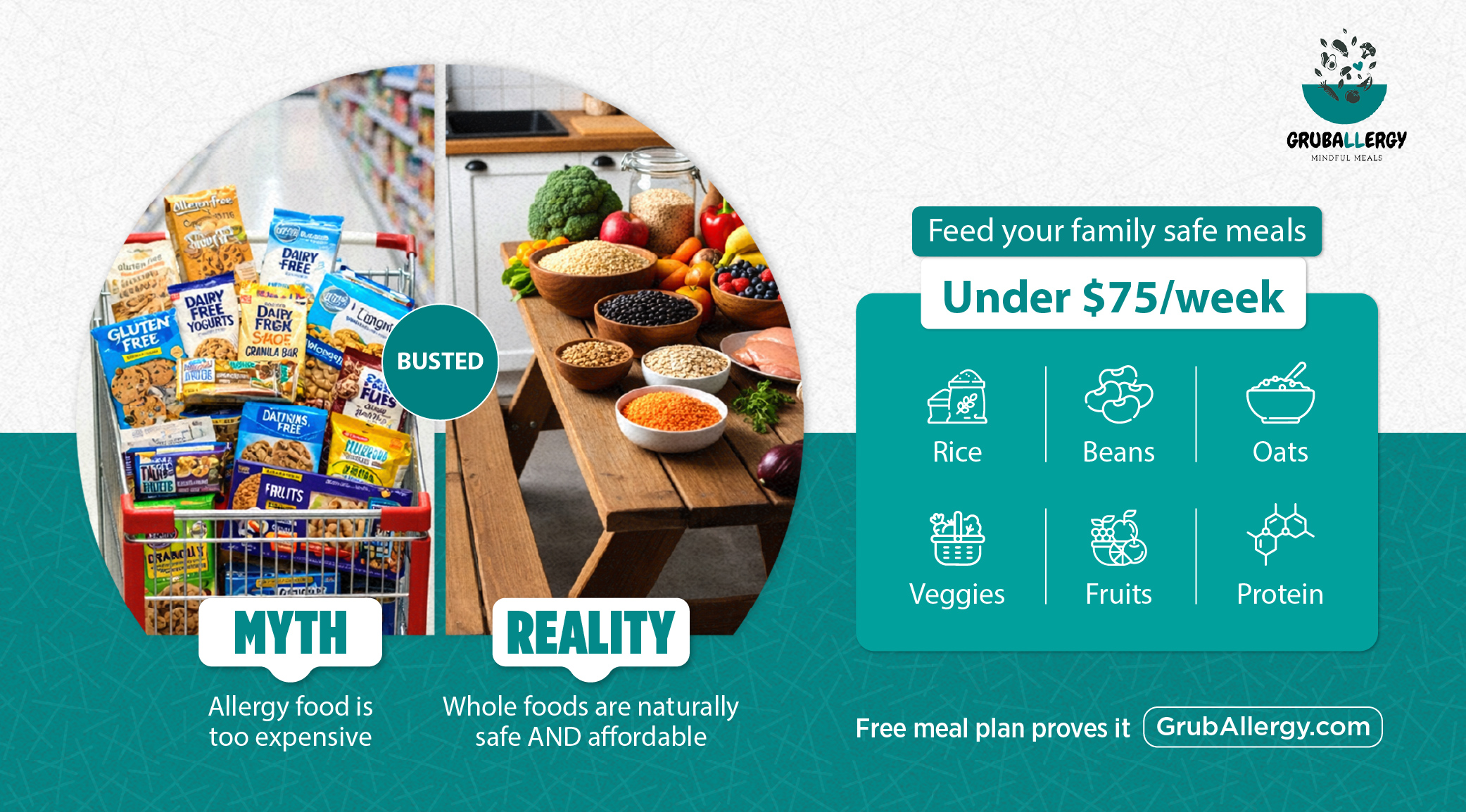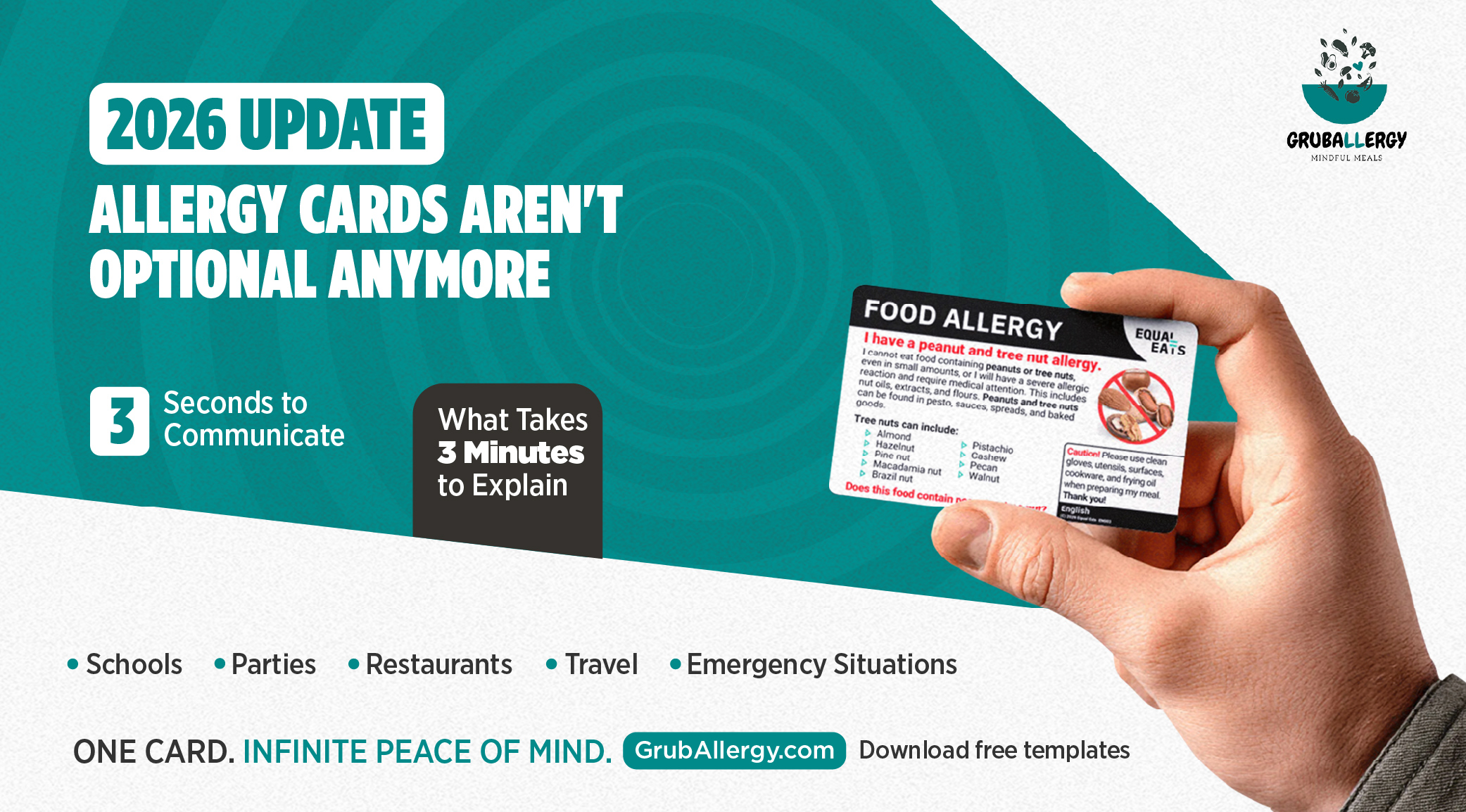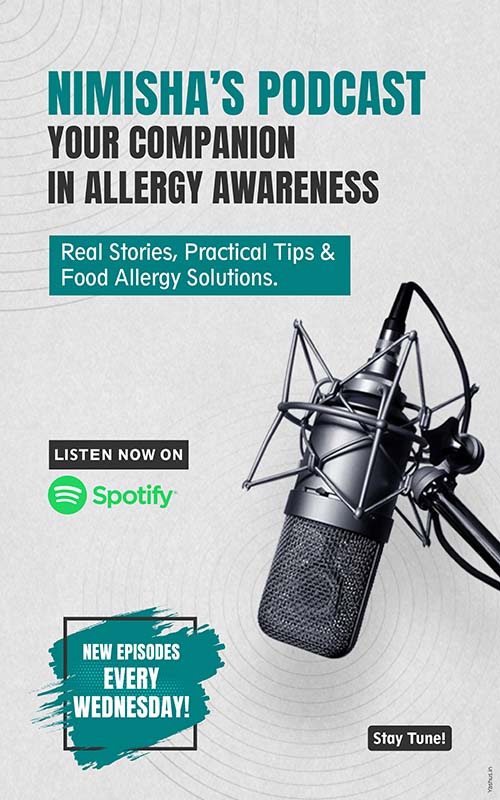
For teens with food allergies, navigating adolescence can already be a challenging journey filled with new responsibilities, social pressures, and identity formation. When it comes to allergies in teens, these challenges are compounded by the need to manage a potentially life-threatening condition. As they transition from childhood to adulthood, it is crucial that teens learn to confidently manage their food allergies and become effective self-advocates. Building confidence and self-advocacy not only empowers teens to protect themselves but also fosters independence and resilience that will serve them for a lifetime.
Managing Allergies Independently: A Guide for Teenagers
Food allergies in teenagers are a common issue, affecting their daily routines, social interactions, and overall well-being. As they grow older, it becomes essential for them to learn how to manage food allergies as a teen independently. This process not only involves being more self-aware but also taking responsibility for their health. Managing allergies independently includes strategies like label reading for food allergies, dining out safely, carrying necessary medications, and explaining one’s condition to peers without fear or embarrassment. By taking these steps, teenagers can regain control over their lives while maintaining a sense of confidence and normalcy.
1. Reading Labels: Knowledge is Power
One of the most important skills teenagers can develop when managing allergies is label reading for food allergies. This practice can prevent accidental exposure to allergens, especially when shopping for groceries or snacking on packaged foods. Many food items contain hidden allergens, such as nuts, dairy, or gluten, under different names. Therefore, it’s crucial for teenagers to become familiar with common ingredients and allergens, as well as their various aliases.
Taking time to thoroughly read food labels and researching unfamiliar terms can help teens with food allergies make informed choices about what they consume. This habit can also serve as a preventive measure when they are at home or when they are making decisions on the go, like at school or a friend's house. Parents and doctors can guide teenagers in learning which specific ingredients to avoid, but ultimately, it is the teenager’s responsibility to ensure that the food they eat is safe.
2. Dining Out Safely: Proactive Communication
Dining out with friends or family is a typical social activity for teenagers, but for those with allergies, it can be a source of anxiety. The key to safe eating out with food allergies is proactive communication. Before going to a restaurant, teenagers should learn how to approach the staff with their allergy concerns in a clear and concise manner. This means informing the waiter or chef about their allergies, asking about the ingredients in a dish, and confirming that the kitchen can accommodate special dietary needs.
Teenagers should feel comfortable requesting modifications to a dish or choosing a meal that is more suitable for their allergies. Additionally, it is important for them to be confident in asking about cross-contamination practices in the kitchen. Many restaurants are becoming more knowledgeable about food allergies, but clear communication ensures that the teenager’s needs are met. By taking these steps, teens can reduce the risk of allergic reactions while still enjoying a social meal out.
3. Carrying Medications: Always Prepared
When managing allergies independently, carrying the right medications is crucial. For teens with severe allergies, especially to food or insect stings, carrying an epipen for teens (like an EpiPen) is essential. The auto-injector should be carried everywhere, as reactions can occur unexpectedly. Teenagers should also be familiar with how to use their medication in case of an emergency, and parents or guardians can provide training on proper usage.
In addition to the auto-injector, it is helpful for teenagers to carry other medications, such as antihistamines, depending on the severity of their allergies. These should be kept in a consistent, easily accessible place whether in a backpack, purse, or pocket. Carrying allergy medication in school is especially important to ensure quick response during an allergic reaction. Teenagers can set reminders to check that they always have their medications before leaving the house or heading to school, sports practice, or a friend’s house.
Being prepared and carrying necessary medications not only ensures safety but also gives teenagers confidence in navigating daily life without the constant fear of being caught unprepared.
4. Explaining Allergies to Peers: Overcoming Fear and Embarrassment
For many teenagers, the social aspects of living with food allergies can be the most challenging. The fear of being judged or embarrassed by peers often prevents them from speaking openly about their condition. However, explaining food allergies to peers is essential for self-advocacy and health. Teenagers need to understand that they have the right to protect themselves and prioritize their health, even if that means talking about allergies with friends.
One way to approach this is by practicing how to explain allergies clearly and calmly. For instance, a teenager could say, "I have a severe allergy to peanuts, and it can make me really sick, so I need to avoid foods that have peanuts in them." This type of direct communication helps peers understand the importance of respecting dietary restrictions. Teenagers can also educate friends about what to do in case of an emergency, such as how to administer an epinephrine shot if necessary.
It is also helpful to talk about allergies in a way that feels normal, rather than focusing on it as something to be ashamed of. Encouraging teens to own their condition and frame it in a way that empowers them can shift the narrative from one of fear and embarrassment to one of self-respect. Over time, as they gain more experience, the process of how to talk about allergies with friends will become second nature.
5. Building Confidence and Independence
Finally, the process of managing food allergies as a teen is one of growth. Teenagers will naturally develop more confidence in handling their condition as they learn how to navigate different situations, such as going out with friends, attending events, and participating in extracurricular activities. The key is for them to build a solid foundation of knowledge and skills like label reading for food allergies, carrying medications, and communicating with peers and restaurants so that they can handle any situation with confidence.
Parents and caregivers play a critical role in this process by providing support, encouragement, and guidance. However, as teenagers learn to take ownership of their health, they can enjoy a sense of autonomy and responsibility. In doing so, they not only protect themselves from allergic reactions but also strengthen their ability to advocate for their well-being in various social contexts. This journey fosters allergy confidence building for youth, preparing them for a healthier, more independent future.
Managing food allergies as a teen is an important skill that can help teenagers lead more fulfilling and less anxiety-ridden lives. By practicing label reading for food allergies, dining out safely, always carrying their medications, and confidently explaining their condition to peers, teenagers can take control of their health and feel empowered in all aspects of their lives. As they navigate these challenges, they will build resilience, confidence, and a greater sense of independence, all of which contribute to their overall well-being.
FAQ
-
At Grub Allergy, we always recommend practicing communication ahead of time. Teens should learn how to explain their allergies clearly to restaurant staff and ask about cross-contamination. This builds both safety and confidence. It’s all about preparati

-
Teen allergy self-advocacy means learning how to speak up about your food allergies, whether you're at school, with friends, or eating out. For teenagers with food allergies, this skill is empowering—it helps them take control of their health and be safe,

-
Start by gradually shifting responsibility. Teach your teen to read labels, carry their medications, and communicate their needs. Encouraging small, consistent steps helps teens feel more in control while knowing you’re there if they need backup

-
Some essential allergy management tips for teens include: always reading labels, carrying an epinephrine auto-injector, speaking up in social settings, and choosing safe snacks. Confidence comes with practice, and it’s okay to make a checklist to stay on

-
Schools can be tricky, but planning makes all the difference. Teens should keep their allergy medications accessible, communicate with teachers and friends, and know how to identify symptoms early. It’s also helpful if school staff are aware of their con

-
We always recommend teens carry their epinephrine auto-injector, antihistamines (if prescribed), and a medical ID if possible. Having these tools close by can be life-saving and gives peace of mind during daily activities.

-
Normalize it! At Grub Allergy, we remind teens that food allergies are a part of life for many people. A calm, confident explanation like “I have a peanut allergy, so I need to avoid anything with peanuts” can go a long way in creating understanding and

-
Yes! Apps that scan food labels, remind you to carry your meds, or track symptoms can be great tools for teens with food allergies. Using tech can help build routines and independence.

-
Practice is key. Teens should know how to recognize early signs of a reaction and how to use their epinephrine auto-injector. They should also teach close friends what to do in an emergency. This is an important part of teen allergy self-advocacy.

-
Absolutely! With a few extra precautions and a lot of self-awareness, teens can enjoy parties, sports, travel, and more. The goal is not to limit life but to live fully and safely. Grub Allergy is all about making that possible.

You may also like
Leave a Reply

Get a free consultation with GrubAllergy.
Share your child's food allergy history, and let us guide you with expert advice on managing and navigating food allergies with confidence.



.png)







